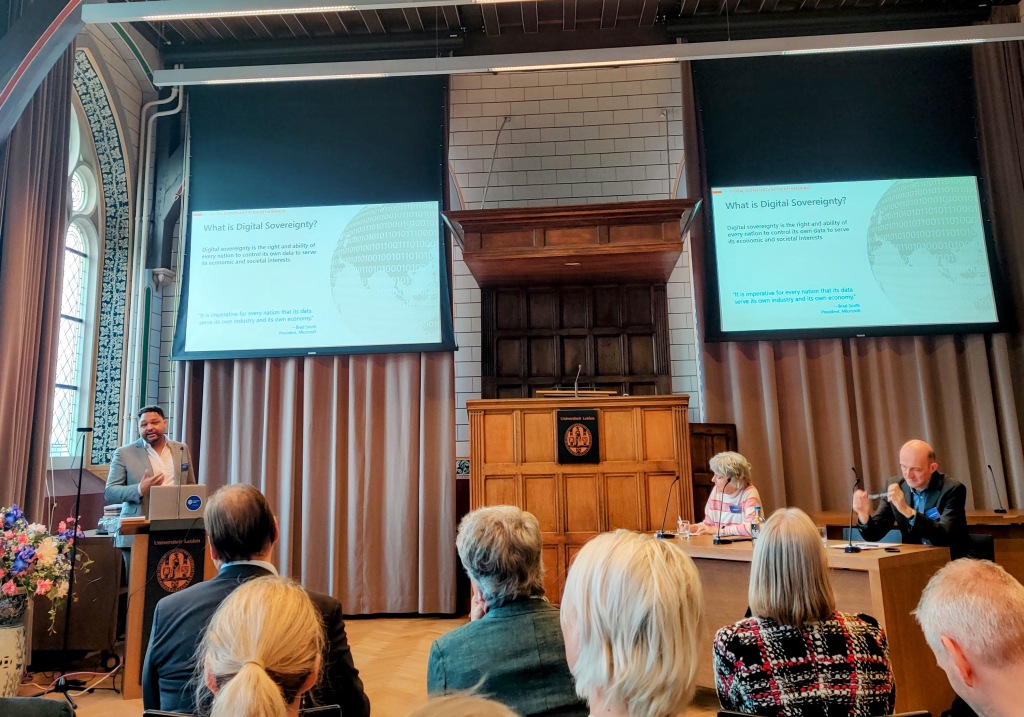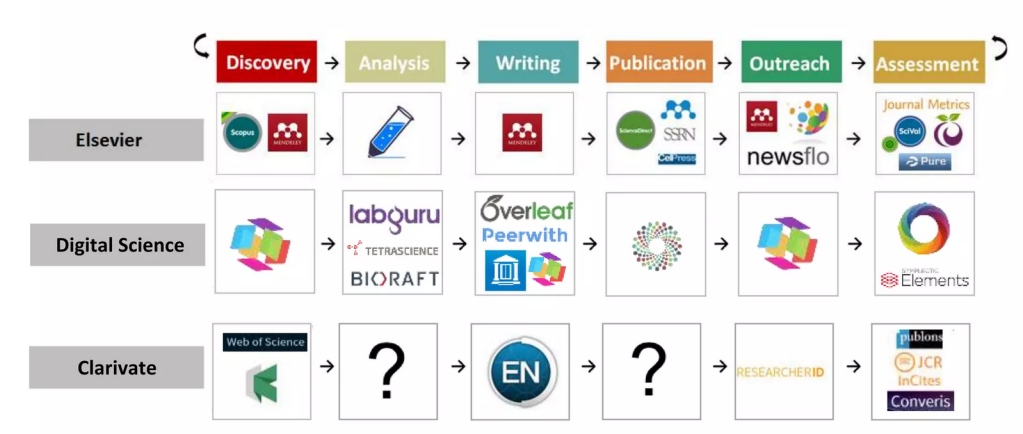Making Priorities for Digital Sovereignty
Discussions at the Leiden University & Elsevier Symposium on Digital Sovereignty, held on 29 November, illustrated how complex yet necessary this relatively new concept of digital sovereignty is. Even the representative from Microsoft, was convinced of the importance of the term. For him, it is a way for gaining and securing customers’ trust, privacy and security for the digital services they provide (and, of course, making a profit)

Azar Koulibaly from Microsoft giving his presentation on ‘Public Values in the Digital Age: Challenges and Opportunities for the Netherlands‘
In the Dutch university sector, we already have some projects that are inspired by the broader discussion over digital sovereignty. There is the Public Spaces movement, largely initiated by the broadcasters, but with some interest from higher education. Surf is making various eye-catching projects, such as its own Large Language Model, and has started an Open Research Information Agenda. And 4TU.ResearchData’s Djehuty data repository software openly invites contributions from the research community. There are others.
But these are still relatively isolated steps.
Within the university / research library sector we are still missing the crucial conversation about how we can work together, and in what areas we want to prioritise.
As background context, the diagram by Bianca Kramer and Jeroen Bosman from 2019 remains a relevant depiction of the landscape of research tools. (their related slides anticipate nearly all of this blog post). It does not depict all the digital services that university researchers make use of it – far from it – but it nevertheless highlights the complexity.

Most importantly, the diagram demonstrates the various arenas within the researcher lifecycle where the university library sector have ceded (consciously or not) digital sovereignty to commercial actors.
Currently, most universities engage, in a contractual sense, with the providers of these servers in an individual context. University A does a deal for Dimensions, and University B does a deal for Mendeley. This is opposed to deals done for access to ‘traditional’ publishing, where the Dutch universities have a history of organising collective agreements with the larger publishers
It seems to me that there is plenty of opportunity to work together to deal with this challenge more effectively: in the metaphor of speaker Ron Augustus from Surf, making honey by acting as bees in a colony.
Can we come together rather than work on this independently?
Some of the possible actions for a collective group might be:
- Defining the key areas on the researcher lifecycle (or indeed for any digital service) where we want to secure (or regain) our digital sovereignty
- Defining how we want to enact that digital sovereignty
- By continuing to have contracts with commercial players, but to do so at a collective level and informed by values (such as the Seven Guiding Principles for Research Information)
- By working together to create our own services to replace the commercial services
- By make sustained, strategic contributions to existing open source services at a global level (a simple example of which is the contributions made to the governance structure of the service Open Knowledge Maps). These contributions could be technical, financial or intellectual
- By making sustained, strategic contributions to open source networks such as SCOSS or Invest in Open
- And finally, defining what we mean by we. Universities? University Libraries? Medical Centres? Research Units? Or maybe even public sector organisations (broadcasters, museums etc)
As the Leiden symposium demonstrated, digital sovereignty is a problem you can drown in – overwhelmed by its size and complexity – and ending up going nowhere.
To avoid this, and to ensure our digital sovereignty, we need to make collective priorities.
